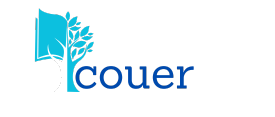University education has long been the cornerstone of higher learning, offering students opportunities to acquire knowledge, skills, and expertise in their chosen fields. However, as the world evolves at an unprecedented pace, universities are faced with the challenge of adapting to the needs and expectations of a rapidly changing society. The evolution of university education is not only driven by technological advancements but also by social, economic, and cultural shifts that are reshaping how education is delivered and experienced.
Technological Advancements
One of the most significant drivers of change in university education is the rise of technology. The integration of digital tools and online platforms has transformed traditional teaching methods. Today, students can access lectures, assignments, and resources online, making learning more flexible and accessible. The growth of online education and massive open online courses (MOOCs) has expanded educational opportunities beyond the boundaries of physical classrooms.
Furthermore, universities are embracing cutting-edge technologies such as virtual reality (VR), artificial intelligence (AI), and blockchain to enhance learning experiences. VR allows students to engage in immersive simulations that provide hands-on experience in fields like medicine, engineering, and architecture. AI-powered tutoring systems offer personalized learning paths, catering to individual student needs.
Changing Career Demands
As industries evolve and new job roles emerge, universities must reassess the curricula they offer. The rise of automation, artificial intelligence, and digitalization has led to an increased demand for graduates with skills in data analysis, coding, and digital literacy. In response, many universities are updating their programs to incorporate these crucial skills. For instance, courses on machine learning, data science, and cybersecurity are becoming standard offerings in computer science departments worldwide.
Moreover, universities are placing a greater emphasis on interdisciplinary education. The problems of the 21st century—such as climate change, global health crises, and economic inequality—require solutions that draw from multiple fields of study. As a result, universities are encouraging students to pursue double majors, minors, or collaborative research projects that combine expertise from diverse disciplines.
Globalization and Inclusivity
The global nature of the modern workforce has led to an increased focus on inclusivity and diversity in university education. Institutions are working to create more inclusive environments where students from all backgrounds feel welcomed and supported. This includes offering scholarships and financial aid programs to help underrepresented students gain access to higher education, as well as fostering a campus culture that celebrates diversity and encourages cross-cultural exchange.
Moreover, universities are expanding their reach internationally by establishing partnerships with institutions around the world. This has led to the rise of international campuses, joint degrees, and exchange programs, enabling students to gain a more global perspective on their education.
Lifelong Learning
In today’s rapidly changing job market, the concept of lifelong learning is gaining prominence. The days when individuals could graduate from university and expect to work in a single career for their entire lives are long gone. As industries evolve, professionals need to continue learning new skills to remain competitive.
Universities are responding to this need by offering flexible, part-time, and online courses for working adults. Many universities now provide professional development programs that allow individuals to upskill or reskill without having to leave their jobs. This shift towards lifelong learning not only benefits individuals but also strengthens economies by creating a more adaptable workforce.

